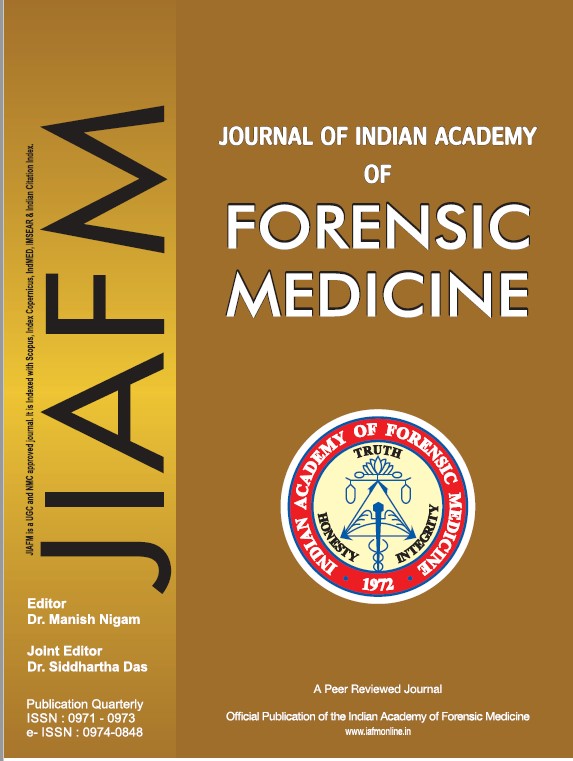Students' perception about 'Model Answer' method as a reflective tool for assessment & teaching-learning in Forensic Medicine
Keywords:
Assessment, Feedback, Medical education, Model answer, Teaching-learningAbstract
Assessment is an integral part of the curriculum and it is always being attempted to connect teaching with learning. Formative assessment has been established as the best way to monitor a student's progress during the learning process. The essence of assessment is the purpose for which an assessment is done. Formative assessment is formative only if the teacher provides feedback to the student. Assessment without feedback may be a lost opportunity for a student to understand and correct the mistake. Challenges have also been perceived previously for providing feedback. Simply providing unstructured feedback might not ensure student's proper understanding of their use as desired by the teacher. The department of Forensic Medicine and Toxicology at our institute practices 'Model Answer' method to provide structured feedback following each formative assessment of medical students for the past few years. The model of 'model answer' used in this study differs from the previously suggested models with few modifications such as it is completely structured, enriched with specific and elaborative feedback and following up the assessment as early as possible. This study is an effort to note the perceptions of students about the effectiveness of the method. Most of the students agreed that this method helped them to learn from assessment, clarify concepts, to discuss commonly occurring mistakes, to learn from other's mistakes, to improve their writing skills, to identify their mistake and understand the appropriate response with reasons. Furthermore, they agreed that the method provided an opportunity for discussion and hence it leads to transparent and unbiased assessment. Structured feedback is essential to inform students about what they are doing well and what requires improvement. The structured model answer method with feedback may create a culture which includes an assessment for learning.


